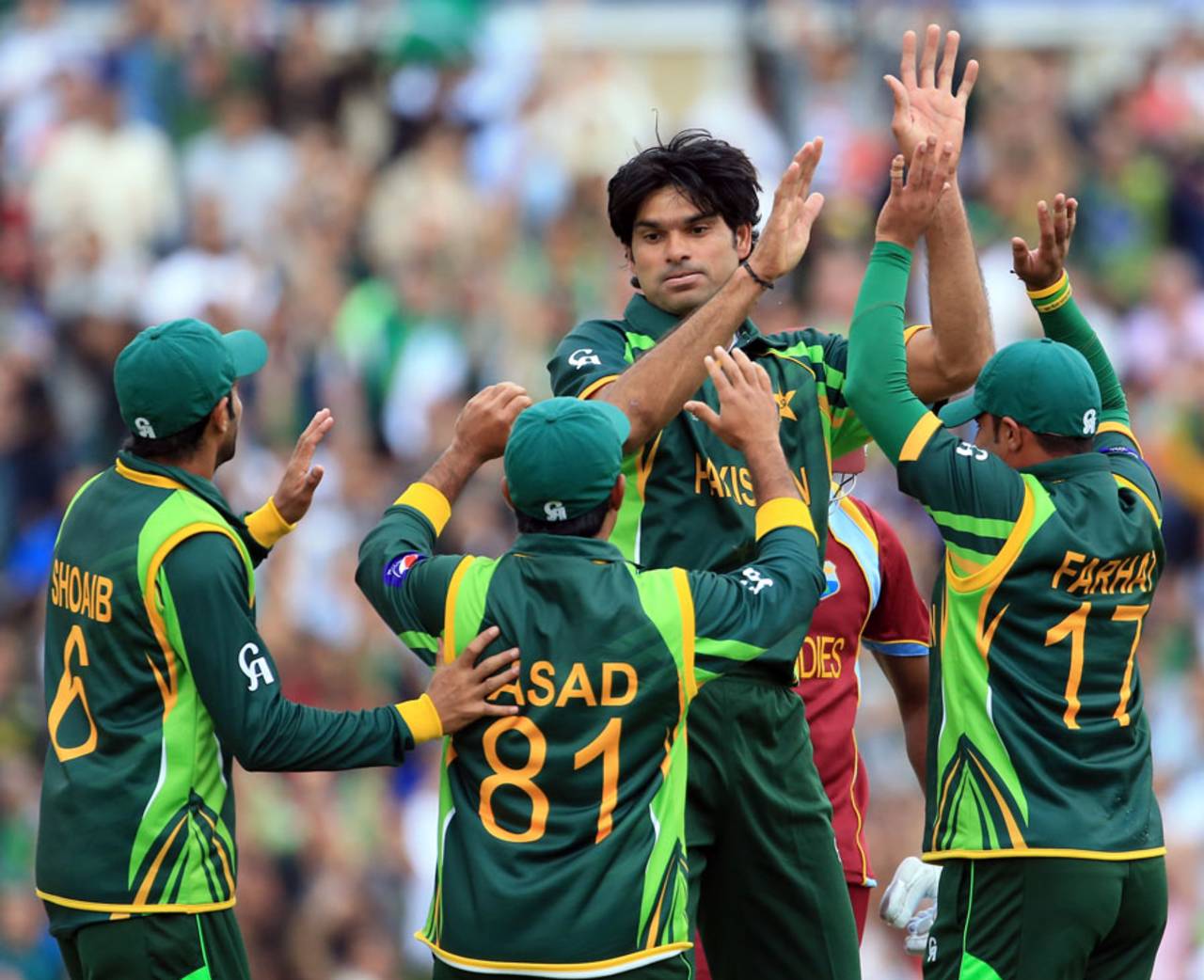An electric instability
When they won it was magnificent, when they lost it made for dynamite drama. In short, just another year in Pakistan cricket

Mohammad Irfan boosted Pakistan at various stages of 2013, a year when he came of age • Getty Images
It would be tempting to suggest that proceedings off the field have hampered the team. But it would be wrong, for when has that ever stopped or helped them?
A few options to consider. Any series win over India, in a shortened ODI series or a longer one, is a highlight. A first-ever ODI series triumph in South Africa - the first by any side from the subcontinent - carried substantial historic weight. An ODI series win against Sri Lanka to end the year meant that Pakistan had won, in total, seven bilateral ODI series this year, which is impressive and a record for them. But it is the Test win against South Africa in Abu Dhabi that stands out. Barely a month before, they had lost a Test to Zimbabwe; South Africa are easily the world's best Test side and had beaten Pakistan with some ease at home earlier in the season. To overturn them, and convincingly, was some result, and confirmation that the intrinsic, undefinable soul of Pakistan's side remained intact.
Also a few options to choose from. To not win against Ireland, no matter that they are the strongest Associate side, was poor. The Champions Trophy was abysmal, more so because of the much-tried, much-failed batting personnel Pakistan took with them. The whitewash in South Africa was predictable, though still abysmal. The legal wrangle they are currently in is no pretty sight either. But trumping them all was the tour to Zimbabwe. Admittedly it was a no-win tour: had they won all before them nobody would have batted an eyelid. But to lose an ODI and then a Test as well was ridiculous. It was heartening for Zimbabwe, of course, and neutrals generally, but for Pakistan a true low.

Sohaib Maqsood and Sharjeel Khan have both looked accomplished. Bilawal Bhatti has something about him worth keeping tabs on. But they've all paled in the considerable shadow of Mohammad Irfan this year. Sure, Irfan isn't new as such; he played two ODIs in 2010 and has hovered in the national consciousness since. But this year he was a different bowler altogether from the one who first appeared in England. He was built stronger, came off a better-coordinated run-up and action, and was able to sustain pace. And he was infinitely wiser, as seen in the fuller lengths he was hitting, mixing them with the permanent threat of his naturally steep bounce. Right through the year, from his bullying of India through to his calculated attacks on South Africa's top order in the UAE, Irfan has been Pakistan's most dangerous paceman. His hip injury at the end is warning enough that his unique frame still has to be handled well, but 52 international wickets are proof of an equally unique diamond.
A new coach, for a start. Dav Whatmore's contract will not be extended and he leaves at the end of February, a curiously low-key two-year tenure to show for it. Again the schedule is light; an Asia Cup, the World Twenty20 and then possible winter assignments against Australia and New Zealand.
Osman Samiuddin is a sportswriter at the National